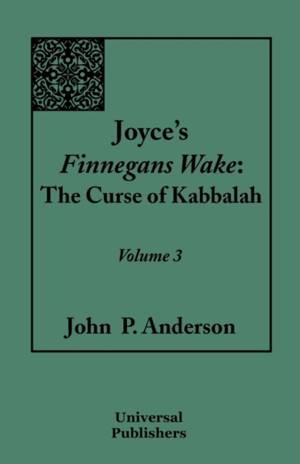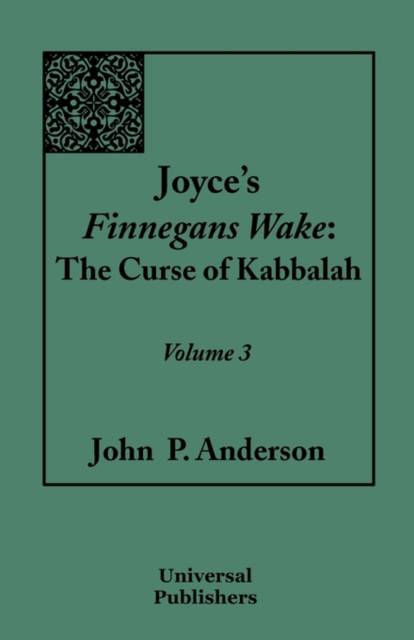
- Retrait gratuit dans votre magasin Club
- 7.000.000 titres dans notre catalogue
- Payer en toute sécurité
- Toujours un magasin près de chez vous
- Retrait gratuit dans votre magasin Club
- 7.000.0000 titres dans notre catalogue
- Payer en toute sécurité
- Toujours un magasin près de chez vous
48,45 €
+ 96 points
Format
Description
This third in a series continues this non-academic author's ground-breaking word by word analysis of James Joyce's Finnegans Wake, Joyce's last blessing on mankind. This volume covers chapters 1.5 and 1.6 with the intent to explore them as art objects, to examine how they work as art. By contrast with previous reduction-based chapters, Chapter 1.5 features expansion, One becoming Many. The spirit of the female principle registered in ALP's letter or "mamafesta" hatches the expansion. This chapter honors creativity in literature along with the human female instinct for giving birth to new human potential. An academically-oriented Professor explores but misses the meaning of the letter. Aristotle's concept of the infinite and the legend of Krishna injecting independence in Gopi milk women frame the chapter. Chapter 1.6 brings back the forces of reduction, Many becoming One. Instead of the female hatching the new, here the male spirit smothers new possibilities in favor of control. Shaun hijacks questions put by Shem to others and reduces their potentially different answers to his answer. The charming fable of Mookse and Gripes modeled on Aesop's "sour grapes" explores the schism between the Roman Catholic and Eastern Orthodox churches; while arguing, both fail to notice the potential presence of the Holy Spirit. These two chapters feature two very different processes, the maternal process and the excremental process, the mother's womb in chapter 1.5 and the colon in chapter 1.6. The mother releases the new child and the colon the same old waste. Distorted spirit in the colon-inspired chapter sponsors Shaun sodomizing his sister. Joyce's masterful synergism of style and content continues. For example: Chapter 1.6 includes a second fable about Burrus [and Caseous], the name suggesting butter. The language used by Joyce takes on the characteristics of butter; like dependent humans, the words change shape and spread easily.
Spécifications
Parties prenantes
- Auteur(s) :
- Editeur:
Contenu
- Nombre de pages :
- 366
- Langue:
- Anglais
Caractéristiques
- EAN:
- 9781599428581
- Date de parution :
- 25-02-10
- Format:
- Livre broché
- Format numérique:
- Trade paperback (VS)
- Dimensions :
- 140 mm x 216 mm
- Poids :
- 462 g

Les avis
Nous publions uniquement les avis qui respectent les conditions requises. Consultez nos conditions pour les avis.






